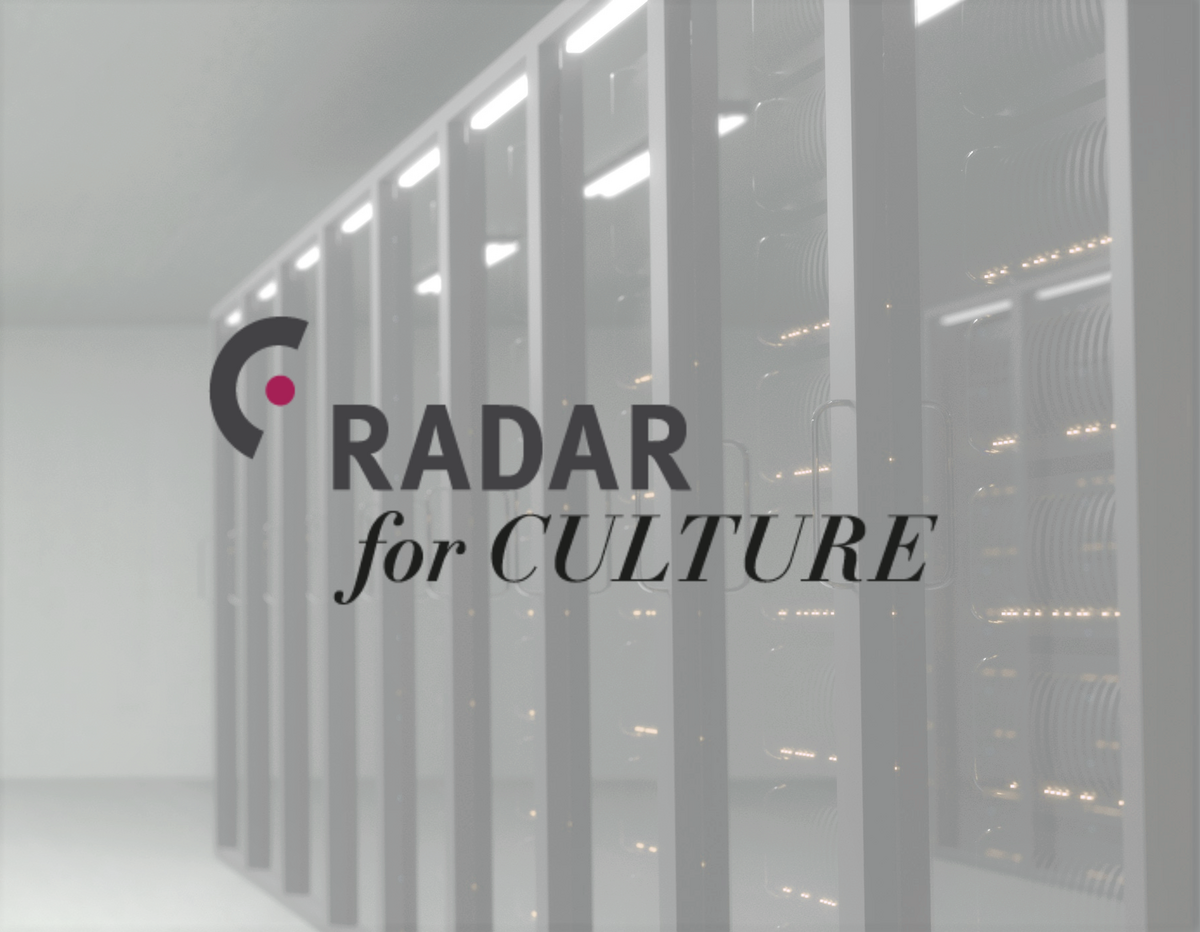News Item | 31. March 2022
RADAR4Culture: a new, low-threshold research data publication service for material and immaterial cultural assets
By Kerstin Soltau and Franziska Fritzsche, M. A.

Launch RADAR4Culture
"Black server racks in a room" CC0 Creator: Manuel Geissinger
As consortium for research data on material and immaterial cultural heritage within the National Research Data Infrastructure Germany (NFDI), NFDI4Culture represents the diversity of architecture, art, music, theatre, film and media studies. For these disciplines, FIZ Karlsruhe – Leibniz Institute for Information Infrastructure, an important stakeholder within the consortium, now offers the new research data publication service RADAR4Culture. Based on the established research data repository RADAR, the service gets launched at the same time as its “sibling“ RADAR4Chem, which is tailored for the academic community in the field of chemistry.
RADAR, run by FIZ Karlsruhe for several years, is an excellent and cross-discplinary service for organisational management as well as for sustainable archiving and publication of research data for academic institutions. With RADAR4Culture, the Leibniz Institute now offers a repository for researchers within the NFDI4Culture community which is not only easy to use and secure, yet research data can also be published free of charge and independent of institutional affiliation. Like RADAR, RADAR4Culture enables the publication of any data type and format, thereby offering various application scenarios.
Dr Felix Bach, head of the department Research Data at FIZ Karlsruhe, states: “RADAR4Chem and RADAR4Culture expand the range of options for FAIR data publication in the disciplines of chemistry and the cultural sciences and humanities within the framework of the NFDI. Thus, we provide scientists with a low-threshold solution that enables them to publish digital data together with descriptive metadata and Digital Object Identifiers (DOI)."
The NFDI4Culture task area “Data Publication and Data Availability“, jointly led by Heidelberg University Library and the Saxon State and University Library (SLUB) Dresden in collaboration with FIZ Karlsruhe, supports both repository providers and researchers of all disciplines and communities represented within NFDI4Culture regarding the storage, publication and long-term archiving of research outputs. Many publication services for research data tend to be subject-specific and only for institutional use. RADAR4Culture aims to close these gaps and to complement the existing repository portfolio by offering a service which meets the needs of the cultural heritage sector.
Dr Maria Effinger, Co-Spokersperson for the NFDI4Culture task area “Data Publication and Data Availability“ and director of the department Publication Services at Heidelberg University Library, explains: “RADAR4Culture fills a void in the current repository landscape of our research data infrastructure. We are pleased to offer this RADAR service to the communities ranging from architecture, art and musicology to theatre, film and media studies. Being a generic service, RADAR therefore is a great example for a basic service operating across consortia.“
Beyond the boundaries of the individual consortia, the NFDI are highly committed to take the needs of researchers into account. Thus, also existing, well-established infrastructures and services are being accumulated, and provided to the communities after they have been made interoperable, thereby making data collections reusable and easy to share.
In this regard, Prof Dr York Sure-Vetter, director of NFDI, points out: “To make data treasures availabe on a broad scale, research data management needs to consider the work of researchers themselves. The services RADAR4Chem and RADAR4Culture enable academics to share (meta)data with their communities and ensure their reusability. Both data repositories thus are an essential step towards a sustainable research data management and a crucial milestone for NFDI.“
Anyone interested in RADAR4Culture can find more information in the press release by FIZ Karlsruhe, on the information page for researchers or by contacting NFDI4Culture.